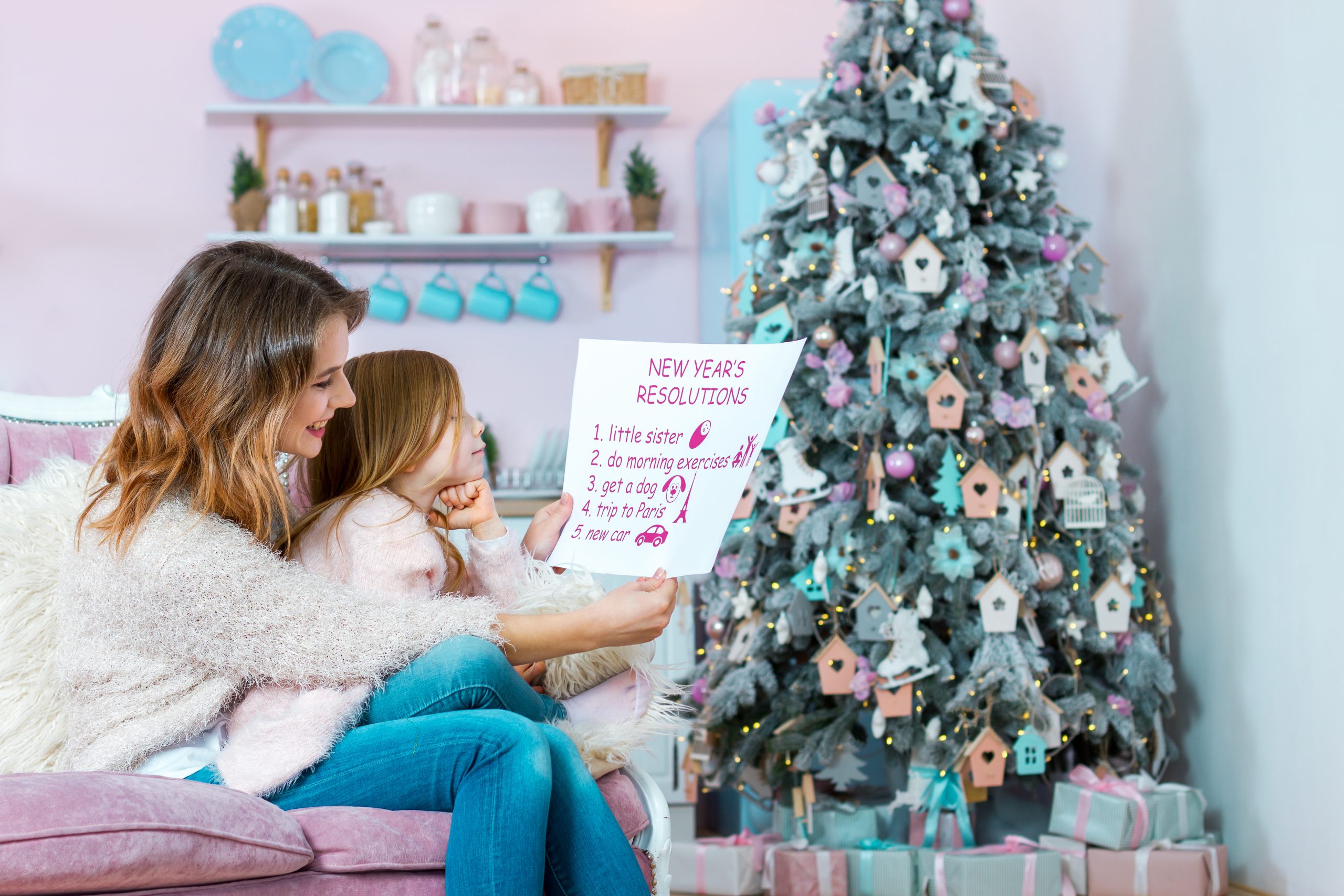We’ve all heard the popular New Year’s phrase: “new year, new me!” While I certainly appreciate the sentiment and strive for self-improvement in my own life, these well-meaning words can take us from feeling motivated to feeling like a failure. New Year’s resolution statistics show that between the first week and six months into the year, the percentage of people who’ve remained consistent in their resolution drops from 75% to 46%. (That’s a lot of pressure to put on anyone!)
These New Year’s resolution statistics can be especially discouraging for children. Why bother setting goals for the new year if they’re bound to be unsuccessful? First thing’s first: shift their perspective! Instead of proclaiming that it’s a new year and new you, focus on making a better year and a better you. Your children are already amazing the way they are—they don’t need to throw in the towel and completely reinvent themselves every time the clock strikes twelve on the last day of the year!
How to Set Goals for Your Child
Lauren Mosback, LPC, NCC, author and licensed professional mental health counselor for children and teens in Philadelphia says, “Goal-setting gives children and teens a sense of responsibility and purpose.” She continues, “As children and teens begin to form their identities, it is important for them to feel positive about themselves, their interests, and achievements. Creating and attaining goals gives children direction, motivates them, and contributes to a strong belief in oneself and the knowledge that they can make a difference.”
The desire to improve oneself is not something only adults can feel. As an independent child with crippling perfectionism, I remember searching for self-improvement opportunities as young as elementary age! Whether it was learning how to tie my shoes without any assistance, packing my own lunch for school or increasing my double Dutch speed, I always wanted to do and be my best.
Instilling self-improvement habits and values into your child will teach them how to properly set and achieve realistic goals. Successful goal-setters recommend taking these steps when developing a self-improvement plan:
1. Evaluate the areas of your life you’d like to improve.
Do you have a struggling student on your hands? Do any of your children have a hard time getting along? Walk through a typical day with your child to help them identify what they’d like to work on.
2. Identify your strengths, weaknesses and other opportunities for growth.
If your child can’t quite come up with an area of improvement, narrow their scope! Help them identify their personal strengths and weaknesses to guide them toward growth.
3. Make clear and specific goals.
The vaguer the goal, the more challenging it will be to achieve. Get specific! If your child wants to improve their grade in their history class, don’t just leave it at “do better in history”—make it “improve my history grade from ‘C’ to ‘B’ by the end of the semester.”
4. List your goals in order of importance.
Once your child has picked a few things to work on, ask them to determine each item’s importance. List them in that order to keep their focus on one thing at a time.
5. Set progress milestones.
Assigning a deadline to a goal will push your child to work harder to accomplish it! If your child wants to master a certain skill, follow the SMART rule to determine an effective milestone: specific, measurable, achievable, realistic, and timely.
6. Create an action plan.
What steps does your child need to take in order to accomplish each goal? If your child would like to read more books, their action plan could include shortening TV time, making more frequent trips to the library and planning to read at least 30 minutes each day.
7. Regularly review your progress.
Keep your child accountable, but more importantly, keep your child accountable to themselves. Plan to check in and evaluate progress together weekly, monthly or whenever makes the most sense for each goal.
Keeping these tips in mind, you can help your children navigate their New Year’s resolutions. What better time than now to teach them about the importance of improvement?
New Year’s Resolution Ideas for Kids
- Keep bedroom clean by tidying daily
- Make the bed every morning
- Do more chores around the house
- Practice gratitude
- Perform a random act of kindness every week
- Cut down on screen time
- Put phone away at certain time of the day
- Plan a weekly game night with family
- Get along better with a sibling or friend
- Start an Etsy shop
- Learn a new skill
- Keep a journal and write in it daily
- Improve grades in school
- Complete homework before playing
- Read at least 30 minutes each day
- Learn a new vocabulary word every week
- Improve time management skills
- Eat more vegetables at dinner
- Try new foods
- Drink more water
- Exercise more regularly
- Try a new sport
- Play outside when the weather is nice
- Sleep at least 8 hours each night
- Practice positive self-talk
We hope you have the happiest New Year with your family, filled with fun and successful goal-setting! To start setting those goals, click here and download our New Year’s resolution worksheet.


